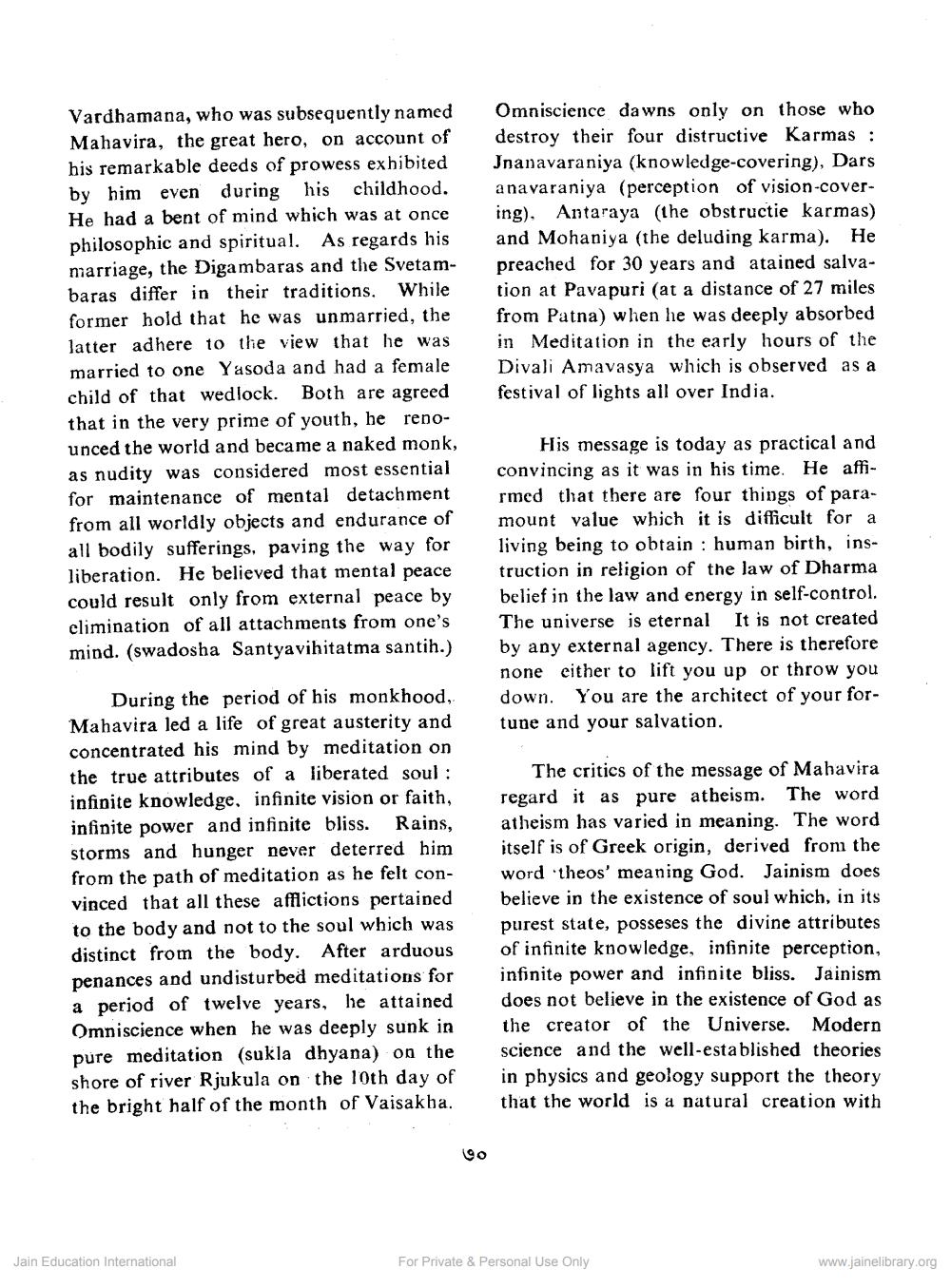Book Title: Message of Mahavir Author(s): T K Tukol Publisher: Z_Tirthankar_Mahavir_Smruti_Granth_012001.pdf View full book textPage 2
________________ Vardhamana, who was subsequently named Mahavira, the great hero, on account of his remarkable deeds of prowess exhibited by him even during his childhood. He had a bent of mind which was at once philosophic and spiritual. As regards his marriage, the Digambaras and the Svetambaras differ in their traditions. While former hold that he was unmarried, the latter adhere to the view that he was married to one Yasoda and had a female child of that wedlock. Both are agreed that in the very prime of youth, he renounced the world and became a naked monk, as nudity was considered most essential for maintenance of mental detachment from all worldly objects and endurance of all bodily sufferings, paving the way for liberation. He believed that mental peace could result only from external peace by elimination of all attachments from one's mind. (swadosha Santyavihitatma santih.) Omniscience dawns only on those who destroy their four distructive Karmas : Jnanavaraniya (knowledge-covering), Dars anavaraniya (perception of vision-covering). Antaraya (the obstructie karmas) and Mohaniya (the deluding karma). He preached for 30 years and atained salvation at Pavapuri (at a distance of 27 miles from Patna) when he was deeply absorbed in Meditation in the early hours of the Divali Amavasya which is observed as a festival of lights all over India. His message is today as practical and convincing as it was in his time. He affirmed that there are four things of paramount value which it is difficult for a living being to obtain : human birth, instruction in religion of the law of Dharma belief in the law and energy in self-control. The universe is eternal It is not created by any external agency. There is therefore none either to lift you up or throw you down. You are the architect of your fortune and your salvation. During the period of his monkhood, Mahavira led a life of great austerity and concentrated his mind by meditation on the true attributes of a liberated soul : infinite knowledge, infinite vision or faith, infinite power and infinite bliss. Rains, storms and hunger never deterred him from the path of meditation as he felt convinced that all these afflictions pertained to the body and not to the soul which was distinct from the body. After arduous penances and undisturbed meditations for a period of twelve years, he attained Omniscience when he was deeply sunk in pure meditation (sukla dhyana) on the shore of river Rjukula on the 10th day of the bright half of the month of Vaisakha. The critics of the message of Mahavira regard it as pure atheism. The word atheism has varied in meaning. The word itself is of Greek origin, derived from the word 'theos' meaning God. Jainism does believe in the existence of soul which, in its purest state, posseses the divine attributes of infinite knowledge, infinite perception, infinite power and infinite bliss. Jainism does not believe in the existence of God as the creator of the Universe. Modern science and the well-established theories in physics and geology support the theory that the world is a natural creation with Jain Education International For Private & Personal Use Only www.jainelibrary.orgPage Navigation
1 2 3 4 5 6 7
